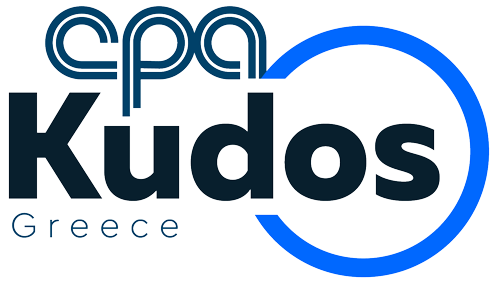Two-speed and horizontal implementation of ESG criteria in Greece: Small and medium-sized enterprises lagging behind
The catalytic role played by SMEs, as the backbone of the Greek economy, in the sustainable transformation of the Greek economy is highlighted by the research “ESG and SMEs” conducted by MRB Hellas on behalf of CPA Kudos Greece.
Challenges and opportunities
As the survey findings show, 34% of respondents could not answer the question what ESG is , while a large percentage of respondents identified the concept of sustainability with the existence of environmental policies rather than with social responsibility or corporate governance.
Despite the fact that the study finds that SMEs are unaware of the definition of ESG, there is a paradoxically positive inclination towards the relevant legislation, with 68.3% of SMEs acknowledging its necessity. In the same context, the vast majority of companies consider the implementation of ESG policies by companies of all sizes to be a positive development, with more than 60% of responses. These percentages indicate that there is fertile ground for SMEs to comply with ESG criteria.
Existing gap between large and small businesses
32.5% of the companies that participated in the survey stated that they implement ESG policies in their company, 24.3% stated that they do not implement them but intend to do so at some point in the near future, while 38.4% stated that they do not implement them and do not intend to do so immediately.
These figures show the difficulty faced by SMEs in making a sustainable transition compared to large enterprises, where the corresponding implementation rate is significantly higher (46%) compared to the sample as a whole.
At the same time, the study finds that the implementation of ESG by SMEs is mainly fragmented and does not concern the whole organisation. Specifically, 90% implement policies related to the Environment, 78.3% to Society and 63.2% to Governance. In only 10% of the companies that implement Sustainability policies , these policies govern the entire operations of the company.
Which programmes ESG are implemented by SMEs
Human resources development actions (brain-drain, training, inclusion, etc.) have the lead in programme implementation at 70.2%.
This is followed by investments in the circular economy (recycling, reuse of resources, waste reduction) at 69.6%.
The development of new “green” products and services is in third place with 62.4%.
Urgent need for action
A number of respondents raised concerns about the need to apply sustainability policies to small businesses.
Lack of information (70.9%), lack of expertise (50.5%) and increased costs (46.9%) were identified as factors inhibiting the implementation of ESG by SMEs.
When asked about incentives that could enhance compliance with ESG criteria, 47.6% mentioned financial support/resource enhancement/financing and 18.8% mentioned tax incentives.
These findings show that the horizontal approach of ESG measures does not favour SMEs and additional measures are needed from the State both in terms of funding and training of SMEs (through Special Advisors).
Commenting on the results of the study, Dimitris Demetriou, Founder & CEO CPA Kudos Greece stressed: “We consider the conclusions reached in this research to be particularly useful for the adoption of additional measures that will facilitate SMEs and not only SMEs, both at the level of their own policy and at the sectoral level. We hope to make a catalytic contribution to the launch of a national dialogue on ESG, in which the voice of the “small” can be heard in a way that benefits the economy and society.
On behalf of MRB Hellas, Dimitris Mavros, CEO said:
In the world of Business, everything new and of course unknown at its start, is incorporated in Greece at different speeds, with the Early Adopters always be Big Business. This is exactly the phase that the ESG in Greece.
While the Larger Enterprises have incorporated the logic ESG in the way they act, or are moving in that direction, a numerically strong group of companies, while carrying out, however fragmented, actions on the environment or society, remains “excluded” due to non-exposure to this information. There are thus many enterprises that are more “ready” for ESG, than they think
The information deficit is the most important barrier on the road to ESG. This lack of information and knowledge always creates a fear of two kinds a)The fear of a big costly “monster” and b)The fear of “guilt” of whether any company is capable of meeting the challenge. At the same time, the imminent linking of the ESG with business financial assessment is not yet widely known to the business community.
H concept “Business Ethics” and “Right” Entrepreneurship is not the prerogative of the Big, the Listed and the Multinationals. At this point it should be emphasized that businesses are living and operating in a new era where their own “Success” is not, as in the past, based only on one pillar, which is Economic Development. There are two additional pillars equally important, perhaps even more important since they feed back as has been proven Economic Growth, which create a more general narrative for the prosperity of a business a) Progress consisting of the sub-pillars of Discipline, Transparency & Processes and b) Success which consists of the sub-pillars Humanity, Ethics & Spirituality.
Therefore, the big issue for businesses today is the “backbone”…
Development – Progress – Success
…whose central vertebra is the ESG.
This path to Success consists of the following steps:
- Guidance on the recording of actions already carried out
- Study & identification of unfavourable points/areas for improvement
- Prioritisation of unfavourable points/areas for improvement
- Definition of an action plan, with justification & objectives
- Implementation mechanisms/ human & financial resources
- Consensus and workers’ rallying
- Report & Evaluation of actions
- Expertise and guidance from a consultant/ specialist
Identity of the research
The research is quantitative and qualitative through individual interviews. The quantitative survey was conducted in a nationwide random sample of 300 enterprises with 10 or more employees through telephone interviews.
The timeframe for the survey was November-December 2024.
About the CPA Kudos Greece
As a member of the Kudos Global Network, CPA becomes a trusted partner committed to the success of its clients, offering a range of high quality services based on non-negotiable values. As part of this cooperation, CPA Group was renamed CPA Kudos Greece, highlighting the strategic cooperation between the two parties and their unified effort to combine the global expertise of Kudos with the thorough knowledge of the domestic market by CPA’s executives.
About the MRB Hellas
In the world of modern business, a global understanding and deep analysis of the five critical dimensions…
- Brand development
- Sociocultural Understanding
- Socio-political Understanding
- Media and their exploitation; and
- Artificial Intelligence (AI)
are the pillars for the development of sustainable and successful business strategies.
MRB Hellas, as a “5D Holistic Research & Consulting Institute”, recognizes the importance of in-depth knowledge in each of these dimensions and stresses the need for their integrated synthesis in order to ensure the most appropriate solutions.
Each of these dimensions enriches our understanding of the business landscape, allowing clients to understand the broader implications of their decisions.
MRB Hellas ‘ clients enjoy and benefit from a holistic 360-degree perspective, which broadens their horizons and allows them to approach the market with significantly reduced business risk.
Understanding all aspects of common goals ensures that every decision is measured, well-informed and targeted, allowing customers to lead the market rather than follow it.
You can download the short report of the survey here.





